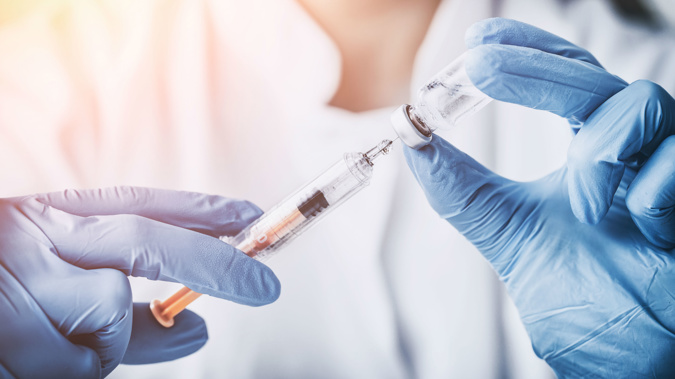
District health boards have anti-vaxxers in their sights, saying diseases almost eradicated in New Zealand are being seen again.
Labour MP Louisa Wall asked DHB members appearing before the health select committee at Parliament today about an increase in the number of parents declining to have their children immunised against the usual range of diseases such as measles, mumps and rubella (MMR).
"What are we going to do about these active anti-vaxxers who seem to be starting to appear in different communities?" Wall, who was chairing the committee, asked the leadership team of Bay of Plenty DHB.
Chief executive Helen Mason said while the DHB had achieved five of the six health targets set by the previous government, "immunisation hasn't moved and has actually deteriorated. It really, really worries us."
The DHB had tried a number of things to try to improve the figure including reconfiguring its immunisation service and adopting methods used by successful DHBs but it was at the point where it needed to do something completely different, she said.
Board chairwoman Sally Webb raised the issue of anti-vaxxers.
"I think that's something we need to look at nationally, how we're going to combat the negative effects of that."
Waikato DHB interim chief executive Derek Wright said it needed to be pushed as a public health message.
"We're seeing things like measles, we're seeing a whole lot of things that we'd almost eradicated," he told the committee.
"We've got a group of people who just refuse to have their kids vaccinated for philosophical reasons."
He said there was no particular 'type' of parent who chose not to immunise.
"It's across the various different areas. It's people who are extremely well-educated. It's people who are probably struggling at times as well.
"The anti-vax people have done a really good job of raising concerns. I think it needs a national message, we actually need to be pushing it. There is some good science out there, we need to be using it," he said.
Wall told the Herald later she would be seeking more information on the issue and would take it up with her health select committee colleagues.
The Ministry of Health has set a 95 per cent coverage target for all DHBs to achieve community immunity.
In the three months to December 2018 only one DHB, Auckland, achieved that target. The average of all 20 DHBs was 91.4 per cent.
The combined percentage of opt-outs from the National Immunisation Register (NIR) and declines of one or more vaccinations at age 8 months increased every year from 3.9 per cent in December 2015 to 5.3 per cent for the year to December 2018.
Director of Public Health Caroline McElnay said that since the start of 2017, infant immunisation rates had decreased, with the most recent figures at 91 per cent overall and 86 per cent for Māori.
"The decrease in infant immunisation is due to both an increase in vaccine declines/NIR opt-offs and in more children not being immunised on time for other reasons," McElnay said.
The ministry had been working closely with DHBs and primary health organisations to identify the causes of the decreases and address them.
"Vaccine hesitancy is one factor that affects immunisation rates. There are other factors that also need to be addressed, such as families' engagement with and access to available health services," she said.
A new study of more than half a million children found no link between the measles, mumps and rubella vaccination and autism.
The Danish study, published in the Annals of Internal Medicine journal, looked at all children born in the country between 1999 and 2010. The children were followed through to the end of August 2013.
It found the MMR vaccine did not increase the risk of autism, even in children with other autism risk factors or in children whose siblings had autism.
DHBs with the highest immunisation opt-outs and declines at age 8 months as at December 2018
West Coast: 16.3%
Northland: 12.7%
Lakes: 9.9%
Bay of Plenty: 9.6%
Nelson/Marlborough: 8.9%
Whanganui: 8.7%
Tairawhiti: 8.2%
Take your Radio, Podcasts and Music with you









